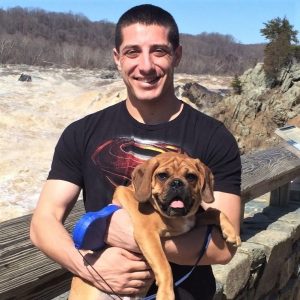Mothers Against Drunk Driving (MADD) is the organization that helped make “designated driver” a common term in America and role for people to fill — that of a person who refrains from drinking at an event so he or she can safely transport others who have chosen to drink. This year, MADD Mid-Atlantic, which covers the state of Maryland, including the Baltimore area, is celebrating “36 Years of the Designated Driver,” commemorating support for the concept and work meant to encourage safe driving.

The significance is not lost on the Jewish community, as the number 36 represents a double chai, the Hebrew word for “life.” It is spelled with a chet (the eighth letter of the alef-bet) and yud (the 10th letter), added together to make 18.
While the concept of the designated driver has existed for many years, MADD helped coin the term back in 1986. The organization is dedicated to educating people on the dangers of driving while intoxicated; offering safe transportation options for those who choose to drink at events; and advocating for legislation meant to penalize and discourage drunk driving.
Much of MADD’s programming takes place during the December holiday season, due to the fact that there is an increase in drunk-driving incidents. Events where alcohol is served, such as holiday parties, are much more common. In 2020, there were 1,133 lives lost from drunk driving in the time between Thanksgiving and New Year’s Eve. The latter holiday sees a significant uptick in drunk-driving incidents: According to the National Highway Traffic Safety Administration (NHTSA), drunk-driving-related deaths are 116% more common than on average.
“The sad part is that two out of three people are impacted by impaired drivers in their lifetime,” said Richard Leotta, who serves on the MADD Mid-Atlantic regional office’s board of directors. “That information is scary stuff, but [spreading it] is how we make change.”
Many of MADD’s volunteers are people whose lives have been impacted by the issue. Like many of his colleagues, Leotta has personal experience with the dangers of driving while intoxicated. His son, Jewish police officer Noah Leotta, was killed in the line of duty. He was part of the Montgomery County Police Department’s holiday alcohol task force, a group dedicated to taking care of DUI cases during the holidays. Noah had pulled over a suspected impaired driver, and while outside his vehicle, he was struck by another impaired driver.
He succumbed to his injuries after seven days in the hospital.
“The media was trying to get a hold of us after it happened,” recounted Leotta. “So we left the country for a week. It gave us the opportunity for the numbness to wear off and for us to come to terms with what we would be dealing with for the rest of our lives.”
Afterwards, he joined MADD as a victim advocate. In the seven years he has spent working as such, Leotta has helped push for more comprehensive legislation against impaired driving.
Noah’s Law, named for his son, is one such piece of legislation. Based on a law that MADD had been trying to pass at the time of Noah’s death, it requires offenders of impaired driving to use a breathalyzer device in order to gain access to their cars and ensure that they are sober before they drive.
‘The public to be educated’
Drunk driving is something that is “100% preventable,” according to Julia Halberstam, a program specialist at the Mid-Atlantic office in Glenwood. “At MADD, we help each other deal with it in different ways. I’ve seen people who became volunteers after being impacted by drunk drivers, and MADD has helped them blossom into advocates against drinking and driving.”
The group continues to advocate for victims of drunk-driving incidents, teaching school students about the dangers of impaired driving and trying to reduce the rate of such incidents in the country. Halberstam is also involved in programming that targets underage drinking and creates programming for middle- and high-schoolers to teach them about the dangers of driving while impaired.
MADD further works with the alcohol industry to foster awareness and create messaging about this ongoing problem throughout the United States.
“We want the public to be educated and for legislators to do the right thing,” said Leotta. “That’s all we’re asking them for; it’s not anything hard. I can’t bring Noah back, but I can make sure that no one else suffers his fate.”







